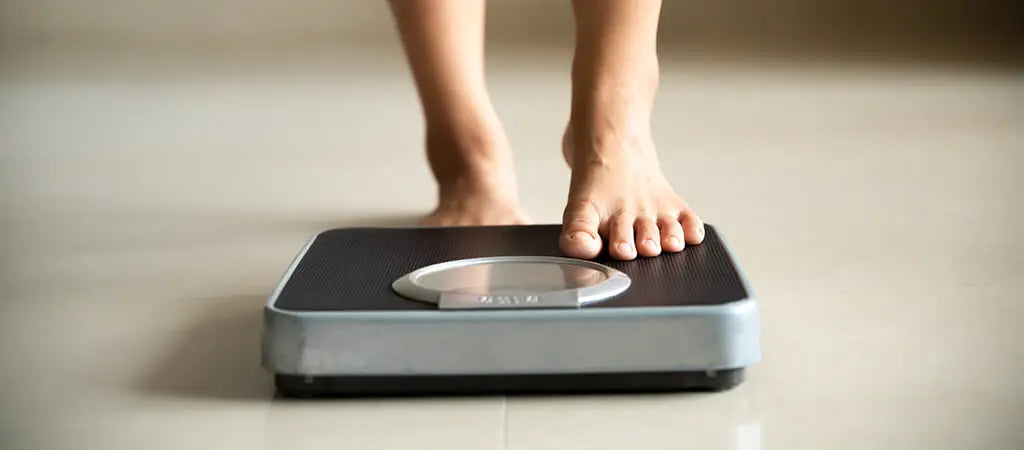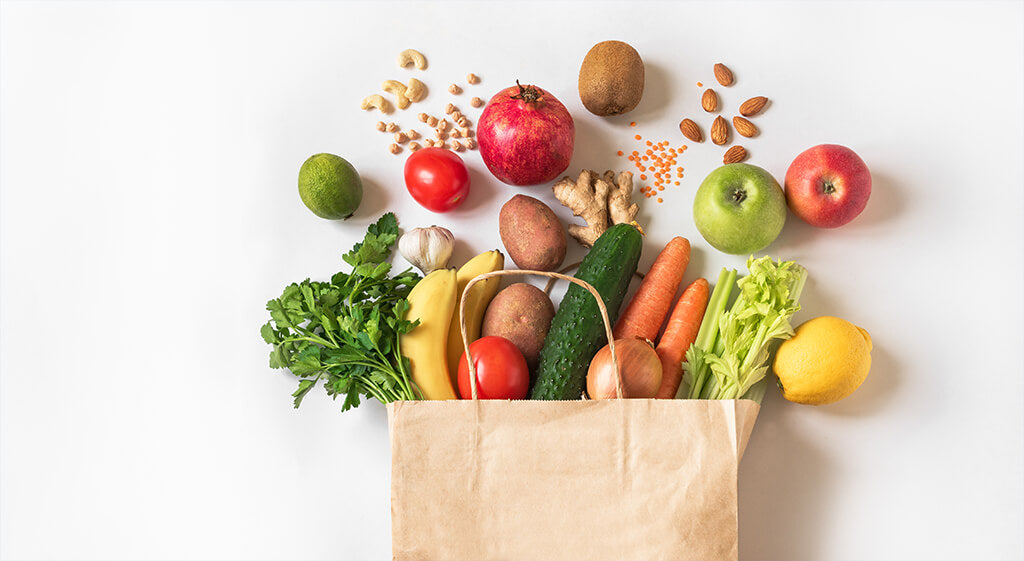
If you're searching for more information on weight loss being overweight and trying to conceive, or you're searching to learn more information on health risks for fat pregnant women, you're likely working to get as healthy as possible before you welcome a little one into your life.
Here, we'll explore everything that you need to know about how to achieve a healthy weight before you begin trying to conceive.
Calculate Your BMI
BMI, or body mass index, is a height-to-weight ratio. Doctors and other medical professionals use BMI to categorize whether people are underweight, a healthy weight, overweight, or obese.
It's simple to calculate your BMI. Simply take your weight in kilograms and divide by the square of your height in meters. Then, find the result on a BMI chart to discover your BMI.
A BMI that falls between 19 and 24 is considered to be within the healthy range. A BMI under 21 is considered underweight, and a BMI over 24 is considered overweight or obese. Racial factors and other considerations need to be made when deciding on a healthy BMI goal. Your doctor can help you decide what BMI makes the most sense for your body.
Signs You Could Be Overweight
It can be hard to tell when you're overweight, and working closely with your doctor to determine a healthy weight range for your body can be the first step in discovering that slimming down may be the best choice for your body.
Some signs that you may be overweight include:
- Sweating more than usual when engaging in physical activity
- Pain in the joints, especially when going up stairs or standing for long periods of time
- Snoring and other sleep disturbances
- Excess body fat (especially in the abdomen)
- Change in ability to perform physically demanding tasks
If you've noticed signs that you may be overweight, you're not alone. Many people struggle with their weight, and it can be hard to reach out for help. Doing so, however, can set you up for a healthy pregnancy, and achieving your ideal weight can make it less likely that you'll need to work toward weight loss during pregnancy.

How Does a High BMI Affect Your Fertility?
Unfortunately, having a BMI in the overweight or obese category may make it harder to get pregnant. Underweight women often have significant difficulties conceiving as well. A BMI in the healthy range creates the best environment for a healthy pregnancy.
It's important to note that some women with a high BMI have no problem getting pregnant, but struggle with health issues as their baby develops due to health issues caused by being overweight and pregnant.
BMI and Pregnancy Risks
There are several overweight pregnancy risks, including:
- Gestational diabetes
- Obstructive sleep apnea
- High birth weight
- Childhood health problems, including childhood obesity and asthma
- Growth challenges
Your doctor may recommend specialized care to keep you and your baby healthy throughout your pregnancy. This may include early screening for gestational diabetes, different approaches to ultrasounds, and dietary changes to support the healthy growth of your baby throughout your pregnancy.
Men, Weight, and Fertility
Men who are overweight can have fertility issues. Sometimes, excess body fat disrupts reproductive hormones. Men who have an imbalance of testosterone and other reproductive hormones may experience fertility struggles, including low sperm count and low sperm movement.

How to Lose Weight in a Healthy Way?
If you're getting ready for pregnancy and want to lose weight, it's important to establish healthy habits that can last throughout your pregnancy and beyond. While crash diets and other quick-fix options can seem tempting, these methods rarely result in lasting weight loss and aren't a healthy option.
Keep these tips in mind when you're working to lose weight in a healthy way:
- Easy does it. Losing weight at a slower pace—about one kilogram per week—is a sustainable goal for most people working through a weight loss program.
- Drink up. Drinking three liters of water per day is a good start to meet your hydration needs.
- Get moving. While the majority of your caloric burn won't come from exercise, moving your body is still an important part of your weight loss plan. Twenty to thirty minutes a few times each week is a good place to start. Look for a type of exercise that you enjoy, and gradually up the intensity as your fitness develops.
- Stop snacking. Weight loss advice of the past advised snacking every couple of hours to keep hunger at bay, but the latest research disagrees. Instead, aim for three balanced, veggie-heavy meals each day. Eat until you're full, and stop when you're done.
FAQ
Q: What's the best weight for pregnancy?
A: Your healthy pre-pregnancy weight depends on many factors. You'll want to aim for a BMI between 19 and 24.
Q: What's the healthiest way to lose weight before pregnancy?
A: Set a slow, steady weight loss goal, move your body a few times each week, drink plenty of water, eliminate snacking between meals, and work to increase your daily veggie intake.
Q: What risks are associated with being overweight and pregnant?
Women who are overweight during pregnancy have a higher risk of gestational diabetes and obstructive sleep apnea. Babies born to women who are overweight during pregnancy may experience high birth weight, growth issues, childhood obesity, and childhood asthma.
Is it healthy to lose weight before getting pregnant?
If you're currently overweight, beginning a healthy exercise and nutrition plan before you try to get pregnant can be a smart way to keep you and your baby healthy. It's smart to talk with your doctor about their recommendations for a healthy weight. Losing weight too quickly can negatively affect your fertility, so you'll want to be sure you're working through your weight loss at a healthy pace.
Losing just 10% of your body weight can have significant health benefits. Whether you're thinking about getting pregnant or actively trying to conceive, following a plan to reach a healthy body weight is a smart move for your health. Be sure to carefully monitor your pregnancy status as you try to conceive, as weight loss during pregnancy may require a different approach than weight loss before pregnancy.
Is there an ideal weight if I want to get pregnant?
Dr. Alan Peaceman, chief of fetal medicine at Chicago's Northwestern Memorial Hospital, says that weight loss before pregnancy is a good idea for women who are overweight. Peaceman says that weight loss isn't just healthy for overweight women who want to become pregnant—it can also reduce lifetime health risks for their babies.
Peaceman says, "Research suggests that overweight mothers are programming babies in utero to be overweight themselves and to have long-term problems with obesity and childhood diabetes."
Your ideal weight depends on several factors, including your starting weight, age, health conditions, your activity level, the amount of muscle mass you have, how often you exercise, and more. If you're interested in learning more about a healthy weight for women, like yourself, who want to conceive, it's smart to make an appointment with your doctor to talk about a healthy weight goal for your body.

